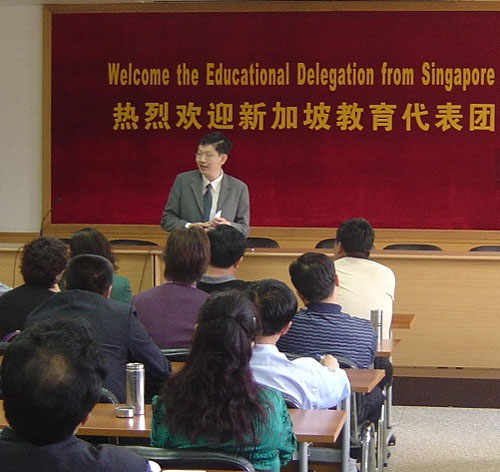
סינגפור מוכרת בעולם כמערכת חינוך ביצועים גבוהה. תלמידי סינגפור הסתדרו טובים מאוד ב 2009 תכנית להערכת סטודנטים בינלאומיים (PISA). מתוך 65 מדינות שהשתתפו במבחנים אלה, תלמידי סינגפור דורגו במקום החמישי בקריאה, שני במתמטיקה והרביעית במדע. “סינגפור הייתה גם החלק השני בגובו (12.3 אחוזים) of students who are top performers in all three domains,” according to a press release from Singapore’s Ministry of Education.
How do teachers motivate students in the Singapore school system? How do they level the playing field between rich and poor students? How do they handle behavioral problems? Are they obsessed with testing?
These are some of the questions I received from readers after the last Q and A we did on the Singapore education system in May. This week we are honored to once again share the views of Dr. Pak Tee Ng on these questions. DR. פאק טי נג הוא דיקן עמית, למידה מנהיגות, משרד ללימודים מתקדמים ולמידה מקצועית, וראש ופרוף, מדיניות וקבוצה האקדמית מנהיגות, במכון הלאומי לחינוך, אוניברסיטה הטכנולוגית נניאנג, רפובליקה של סינגפור.
What methods of motivation does the Singapore school system use to keep kids engaged in learning?
Student motivation in learning is a challenge in many education systems, including Singapore’s. We do not have a standardized way or a best practice of addressing this challenge. But I often ask educators to reflect: “How do we expect inspired learners if we do not have inspired teachers?” I think our key strategy to engage students in learning is to have good teachers, those who understand their students, tailor teaching strategies according to their students’ profile, and make lessons interesting. I also think we need to challenge our mindsets regarding students’ motivation to learn. Young children start off with a natural curiosity and willingness to learn. But many seem to have lost their motivation after some years of schooling, despite teachers’ motivational efforts. למה? אולי, we have gotten the wrong end of the stick. The challenge is not to find methods of developing their learning motivation. The challenge is not to extinguish it! Educators should continuously cultivate and tap children’s innate interest in learning. A different philosophy suggests different strategies!
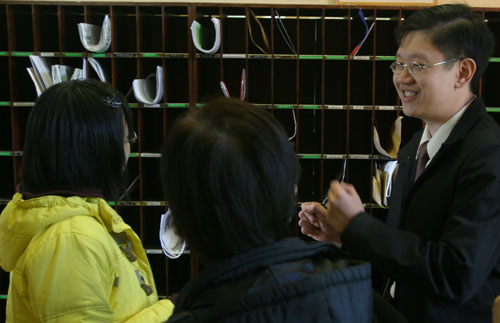
How does your education system nurture the theme of innovation? Can you share some examples from schools in Singapore that are already doing this?
ב 2004, the Education Ministry launched an initiative called “Innovation and Enterprise” (אני&ו) to focus educators’ attention on the theme of innovation. עם זאת, we do not focus on innovation for the sake of innovation. במקום זאת, it is a reminder to educators to allow our students to try new things and to use their enterprising spirit to undertake projects that can be beneficial to others. It is to encourage students to be intellectually curious about matters beyond textbooks or examinations, have the courage to live with ambiguity and to take calculated risks, and be passionate, persistent and resilient. יתר על כן, אני&E is a platform for values inculcation, as part of its aim is to help students develop a sense of teamwork and contribution to the community, grounded in a set of timeless values such as integrity, social responsibility and respect for others. במילים אחרות, we are developing character traits that will be helpful to our next generation, whether they become scientists, businessmen or public officers.
בכל שנה, the Education Ministry organizes the MOE ExCEL Fest (ExCEL stands for Excellence through Continuous Enterprise & למידה), which is a platform to celebrate and share innovative practices in schools. During the two-day event, various schools show their students’ innovations to other schools and the public. Examples of student innovation for the 2012 festival ranged from mathematics games that were designed by pupils of Chua Chu Kang Primary School to complement the teaching and learning efforts by their teachers, to a prototype for an “Ultra Flu Relief Mask” comprising a disposable surgical mask with an inbuilt semi-permeable membrane that secretes a medication such as Vicks, by two students of Pei Hwa Presbyterian Primary School.
How do teachers and leaders in your school system handle behavioral issues?
Most behavioral issues (especially persistent ones) are symptoms that have deeper root causes. Teachers and leaders in our schools handle students with behavioral problems by first trying to understand the deeper problems that these students face. They usually take a problem-solving and counseling approach to work out long-term solutions that can help these students grow in maturity.
בסינגפור, the philosophy toward student discipline is that discipline is an educational process to develop students’ values and moral faculties. The aim of discipline is not to punish but to develop self-discipline in them. But this does not mean that students can escape punishment for wrongdoing. עם זאת, educators recognize that meting out a punishment is not equal to solving the problem.
Singapore schools are allowed to cane students if necessary. This applies to boys only. עם זאת, there are strict guidelines to determine the appropriateness of such punishment and clearly defined procedures for meting out the punishment. It is one of the last courses of action rather than the first line of remedy. The caning may be administered only by the Principal or Vice-Principal, or by a specially designated and trained discipline teacher. Other teachers do not cane students. The parents of the errant student are informed of his misbehavior and punishment.
Prevention is better than cure. Our schools now teach students Social Emotional Learning, comprising 5 core competencies of self-awareness, מודעות חברתית, self-management, relationship management, and responsible decision-making, so that they may acquire the skills, knowledge and dispositions to be mature and productive individuals who can manage themselves and relate well with others.
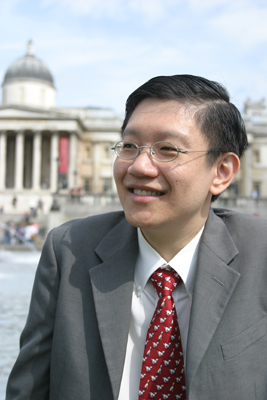
What are your thoughts on what many call an obsession with testing? If there were less testing, wouldn’t teachers and educators be able to focus on a more holistic education?
The key word here is “obsession.” Fundamentally, there is nothing wrong with a test. With appropriate feedback and follow through, students can learn from a test. עם זאת, what many educators are concerned with now is an obsession by various stakeholders (including educators themselves) with testing and the test results. Such tests are not really motivated by learning but come with high stakes and consequences, real or perceived, related to one’s future paths. The challenge is therefore to gradually increase the number of alternative pathways for students and widen the definition of success. Testing can then indeed become a tool for learning, and not a driver for obsessive behaviors by stakeholders of education. This of course is easier said than done. I think holistic education does not refer to an education without test. I think holistic education aims to help each person find identity, משמעות, and purpose in life. Suitable levels and amount of testing, focused on learning, can play a positive role in it.
How in your view should 21st-century students be assessed in a competitive world?
It is quite fashionable nowadays to say that 21st century students should learn and be assessed in 21st-century skills. עם זאת, beyond this broad statement, there does not seem to be an authoritative answer to what this assessment should look like in practice, taking into consideration contextual differences and the difficulties in accurately assessing certain types of learning. But I think a model of 21st-century assessment will emerge in due course, not because of what we think it should be from a theoretical perspective, but because of changes driven by the increasing proximity between schools and industries.
I feel that in the future, education will be brought closer to working life and the industries. The closer interaction between schools and industries will bring about a change in the way that students are assessed. If a school or school system continues to assess students in a way that is not relevant to the industries, that school or school system will become redundant. מצד השני, if a school or school system assesses students in a way that is closely aligned to industrial needs, the qualifications given out by the school or school system will be sought after by various stakeholders. Students who can demonstrate competence in such assessments will definitely find themselves needed by the world after they leave school. Therefore I think 21st century assessment is not a static picture but an evolving one, as schools and industries come more closely together.
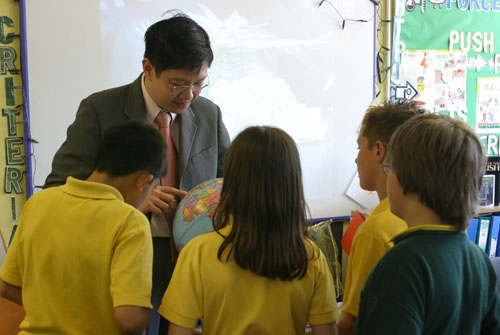
How does your education system level the playing field between children from rich and poor families?
Children from rich families have more resources at their command compared with those from poor families, and the field is never completely level. עם זאת, what has been done in Singapore to make education more equitable is to allow students access to educational pathways based on their merit (not on financial abilities), and to give financial aid or subsidies to poor but deserving students, so that they are not denied access to education because of financial difficulties.
לדוגמא, the Ministry of Education provides a Financial Assistance Scheme to needy Singapore citizen students so that all Singaporeans, regardless of their financial background, can benefit from education. Under this scheme, needy students receive full waiver of school fees and miscellaneous fees, and receive free textbooks and school uniforms. The government also provides a School Advisory Committees’ Fund to allow more targeted aid to students who need even more assistance. מעניין, there was recently an increasing awareness of the importance of pre-school education in a child’s development and therefore an effort on the part of the government to improve the quality of pre-schools in Singapore. A government committee was immediately set up to examine the issue of removing barriers which prevented children from low-income families from attending pre-school.
Realistically, I think we will never be able to level the playing field completely. אבל, there are mechanisms to make it possible for a child from a poor family to overcome financial barriers to pursue education according to his or her potential. Singapore is too small to afford wastage in human resources.
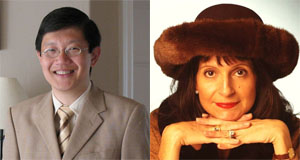
תמונות באדיבותו של ד"ר. PAK NG.
בגלובל החיפוש לחינוך, להצטרף אליי ולמנהיגי מחשבה מוכרת בעולם כולל סר מייקל ברבר (בריטניה), DR. מיכאל בלוק (ארה"ב), DR. ליאון בוטשטיין (ארה"ב), פרופסור קליי כריסטנסן (ארה"ב), DR. לינדה דרלינג-Hammond (ארה"ב), DR. Madhav אוון (הודו), פרופ 'מיכאל Fullan (קנדה), פרופ 'הווארד גרדנר (ארה"ב), פרופ 'איבון הלמן (הולנד), פרופ 'קריסטין Helstad (נורווגיה), ז'אן הנדריקסון (ארה"ב), פרופ 'רוז Hipkins (ניו זילנד), פרופ 'קורנליה הוגלנד (קנדה), גברת. שנטל קאופמן (בלגיה), DR. Eija Kauppinen (פינלנד), מזכיר המדינה Tapio Kosunen (פינלנד), פרופ 'דומיניק לפונטיין (בלגיה), פרופ 'יו לאודר (בריטניה), פרופ 'בן לוין (קנדה), פרופ 'בארי McGaw (אוסטרליה), שיב נדאר (הודו), פרופ 'R. נטריגין (הודו), DR. PAK NG (סינגפור), DR. דניז אפיפיור (ארה"ב), שרידהר ךאג'גופלן (הודו), DR. דיאן ראוויטש (ארה"ב), סר קן רובינסון (בריטניה), פרופ Pasi Sahlberg (פינלנד), אנדריאס שלייכר (PISA, OECD), DR. אנתוני סלדון (בריטניה), DR. דוד שפר (ארה"ב), DR. קירסטן Immersive Are (נורווגיה), קנצלר סטיבן ספאן (ארה"ב), איב Theze (Lycee Francais ארה"ב), פרופ 'צ'רלס Ungerleider (קנדה), פרופ 'טוני וגנר (ארה"ב), סר דייוויד ווטסון (בריטניה), פרופסור דילן Wiliam (בריטניה), DR. מארק Wormald (בריטניה), פרופ 'תיאו Wubbels (הולנד), פרופ 'מייקל יאנג (בריטניה), ופרופ 'Minxuan ג'אנג (סין) כפי שהם לחקור שאלות חינוך תמונה הגדולות שכל המדינות מתמודדות היום. גלובל החיפוש לחינוך עמוד קהילה
C. M. רובין הוא המחבר שתי סדרות מקוונות רבים קוראות שלהיא קיבלה 2011 הפרס אפטון סינקלר, “גלובל החיפוש לחינוך” ו “איך וויל אנחנו קראו?” היא גם מחברם של שלושה ספרים רבי מכר, כולל אליס בארץ הפלאות Real.



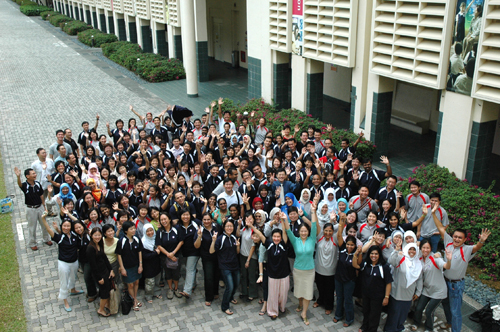
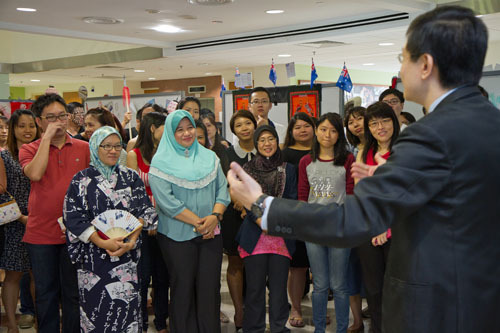
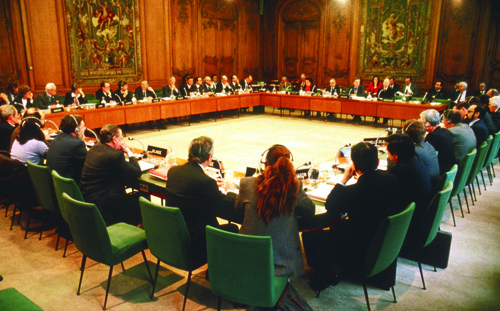
תגובות אחרונות